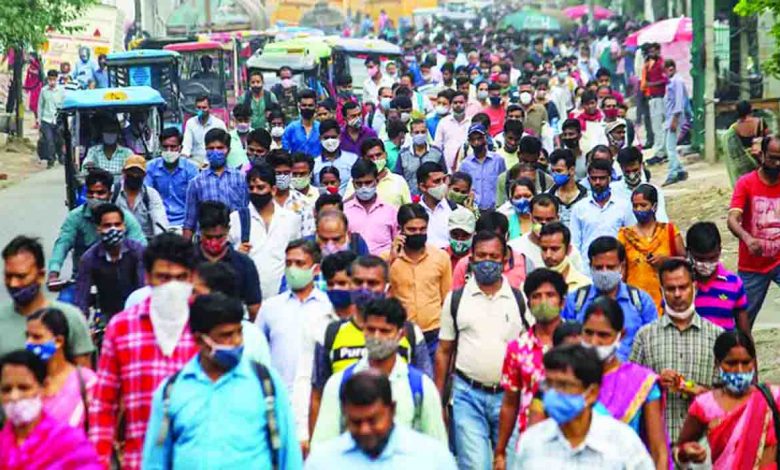Jabs cheat death on reinfection: AIIMS

Saturday, 05 June 2021 | PNS | New Delhi
Exceptions exist
Don’t think twice before going for Covid-19 vaccines. The Delhi-based All India Institute of Medical Sciences (AIIMS) has found that none of the fully vaccinated people died after getting re-infected with coronavirus during April-May 2021.
In other words, while the vaccine does not guarantee protection from re-infection, it offers hope that the human body can develop antibodies that can fight the virus for long.
This was revealed in the first genomic sequence study of breakthrough infections in the country during the deadlier and more infectious second wave of the coronavirus pandemic.
If one contracts Covid-19 after being fully vaccinated, it is known as a breakthrough infection. “There will be a small percentage of fully vaccinated people who still get sick, are hospitalised, or die from Covid-19,” according to the US health agency, Centers for Disease Control and Prevention (CDC).
AIIMS Delhi’s first study on breakthrough infections during the April-May period confirmed that despite a very high viral load, none of the vaccinated people died due to the disease.
However, some would argue that there have been several well-known cases like that of Dr KK Agarwal who died despite taking both the vaccines dozes. The limited sample size may have allowed that aberration to creep in.
Viral load, the measure of the total number of viral particles in a particular volume of fluid, was high at the time of diagnosis even in vaccinated patients and they also reported high temperature persisting for 5-7 days, similar to symptoms of unvaccinated patients.
Out of the 63 breakthrough infections, 36 patients received two doses, while 27 received at least one dose of the Covid-19 vaccine. Ten patients received Covishield, while 53 received Covaxin.
SARS-CoV-2 lineages could be assigned to a total of 36 (57.1 per cent) samples, 19 (52.8 per cent) in patients who completed both doses and 17 (47.2 per cent) in patients who completed only a single dose, the AIIMS study said. The B.1.617 variant, first detected in India, was divided into three lineages — B.1.617.1, B.1.617.2 and B.1.617.3 — as per the study.
The B.1.617.2 variant was found to be the predominant lineage in 23 samples (63.9 per cent). Out of them, 12 were among the people in the fully-vaccinated group and 11 were in the partially-vaccinated group. B.1.617.1 and B.1.1.7 lineages were found in four (11.1 per cent) and one (2.8 per cent) sample respectively.
“While antibody levels for a subset of patients were available, they became infected nevertheless and presented to the emergency just like other patients, putting in doubt the protection offered and or clinical relevance of total IgG as a surrogate of Covid-19 immunity. The present report is unique in many aspects,” the AIIMS report said.
None of the investigated breakthrough infections was fatal. However, all the cases were presented with five to seven days of high-grade unremitting fever.
The patients had a mean age of 37 (21-92), among which 41 were male and 22 were female. None of the patients had any comorbidities that could act as a predisposing factor for breakthrough infections.
As lineage B.1.617.2 was also prevalent in this group, any significant differences in lineages among fully and partially vaccinated samples were also analysed. The difference was not found to be significant in both the groups.
In addition, differences in the prevalence of lineages based on the type of vaccine were also checked. There was no significant difference observed.
Of these breakthrough infections, 10 patients — eight with double doses of vaccine and two with single dose — had total Immunoglobulin G (IgG) antibodies assessed by Chemiluminescent Immunoassay.
Out of these 10 patients, six patients had IgG antibodies a month before the infection, while four had antibodies after the disease.






